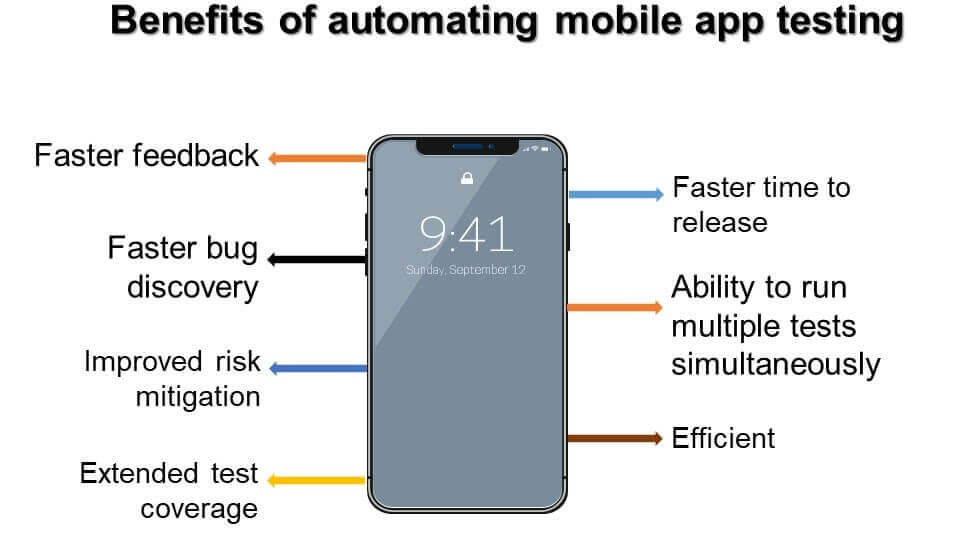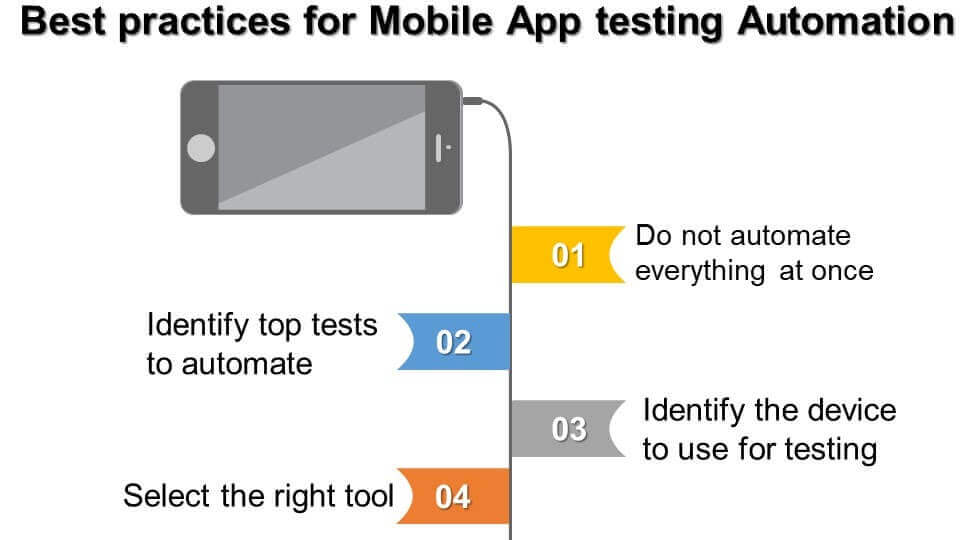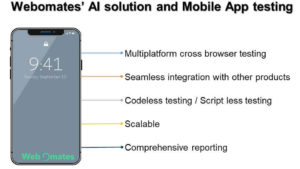
Mobile phone users worldwide are increasing due to the availability of a variety of smartphones in the market, affordable data plans, improved connectivity, and a large range of apps for all types of usage. As per Statista, the number of smartphone users is expected to reach 7.5 billion worldwide by 2026.

These days, there are apps for almost everything, payments, shopping, news reading, education, medicine, work, social media, gaming, and the list keeps growing. However, the popularity of an app is directly proportional to the number of downloads and its reviews, consequently, marking its market share. Users are demanding and any lag in the user experience, services, performance, and less friendly UI results in poor ratings. So, it is wise to invest time, effort, and resources to properly test your apps before launching.
Mobile app testing is a process to test the functionality, performance, user-friendliness, and security of an app.
Mobile app testing also includes testing for operational issues like interruptions due to change in service providers (or location changes), memory leaks, low resources, certifications, compatibility, installation issues, etc. Mobile app testing can be either manual and/or automated.
As mentioned in the previous section, your market share can take a major hit if your app is not robust and user-friendly. Therefore, it needs to be tested rigorously before it can be launched in the market. However, app testing comes with a cost attached to it. Since apps need to be tested for a variety of mobile devices and different OS, and with upgrades happening frequently, the possibilities are numerous and the cost to test all combinations grows beyond the original estimate.
To address this, it is strategically wise to automate your testing process to improve efficiency and save precious resources. Mobile app test automation is known to be a complex activity, but it would be good to invest initially and reap long-term benefits. You can read more about managing QA costs in our previous blog “Managing QA cost by adopting intelligent test automation”.

One of the biggest advantages of automation is that you get to know the test results almost immediately and resolutions for issues can be done on a priority basis.
Defect discovery time is significantly reduced as compared to manual testing.
Faster and earlier detection of issues aids in quick resolutions and risks of running into problems at the time of launch are reduced by a greater degree.
There is as much that you can cover in manual testing. With frequent releases and upgrades, it takes extra effort to manually test every little change. Test automation saves time and effort and provides better test coverage.
Test automation is a winner when it comes to saving those precious man-hours before the app is launched in the market. You need not worry about getting into the details of executing every test by yourself. Let automation take over and you can focus on other details to further make app release faster and better for your customers.
Mobile apps need to be tested for a variety of parameters for various combinations of devices and OS. Do we need to spell out how much time and energy is consumed if this is done manually, especially if you are on a tight deadline? Automation saves the day by executing multiple tests simultaneously and generating quick reports for analysis.
Test automation helps in freeing up resources for other tasks by conducting repetitive and time-consuming tests effectively.

Mobile app testing is complex and test automation comes at a cost. But, if you follow certain best practices while automating your mobile app testing, you can have a win-win situation i.e. a robust app at a manageable cost.

Automating all in one go is not the right way. Pick up the tests that have stabilized and automate them, gradually increasing the number of automated tests. This will help you in identifying problems quickly in case any of the automated tests acts up.
It is a myth that all tests can be automated. Be smart and identify the right tests to automate at unit test level, integration level, and critical functional tests. You may want to read more about automation myths in our blog “Busting automation myths”.
Unlike other software testing approaches a mobile app needs to be tested as per the device it will be installed and used on. Since possibilities could be many, it could pose a challenge for you. But do not worry, there are ways to do it without investing in scores of handsets. You can use a virtual device setup. With virtual devices and few real devices, it becomes comparatively easier to cover the maximum possible scenarios. You can use either or all of the following approaches:
Identifying the right tool for testing is an extremely important part of test planning. Choose a tool that fulfills the following criteria,

Webomates CQ can seamlessly integrate with other products and can scale up or down as per the customer requirement.
Webomates has integrated BrowserStack, Saucelabs, and AWS devices to help users test their app layouts and designs on real devices.
The CQ solution supports multi-platform cross-browser testing. Our patented codeless engine effortlessly converts functional tests to performance tests just with a click making your life easier. We also leverage the power of crowdsourcing for network testing to help our customers provide diverse mobile app testing services.
Our comprehensive reporting system helps the development, testing, and business teams by providing them with a detailed analysis of test results. Read more about our AI-based test failure analysis by clicking here.
Webomates CQ also has an option of executing mini test suites that saves effort and a significant number of man-hours.
We have a capable team of analysts and engineers to aid you along with the power of intelligent automation.
If this has piqued your interest and you want to know more, then please click here and schedule a demo, or reach out to us at info@webomates.com.
If you liked this blog, then please like/follow us Webomates or Aseem.
Tags: AI-based testing, Mobile app testing, Mobile testing, Test Automation
Test Smarter, Not Harder: Get Your Free Trial Today!
Start Free Trial
Leave a Reply